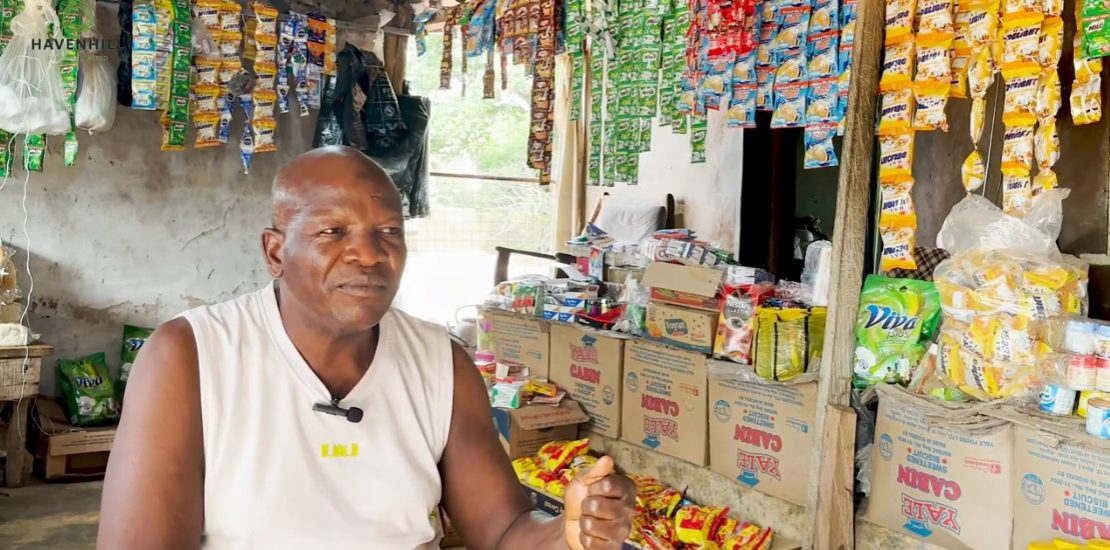- October 22, 2025
- Posted by: Havenhill
- Category: Beyond Electrons

Before the mini-grid, Alhaji Sadiq’s provision shop was a quiet stop between farm and home – customers bought essentials, then left for the nearest town when they wanted cold drinks. After Havenhill Synergy installed a solar mini-grid, foot traffic rose, new businesses moved in, and Alhaji stopped burning petrol to cool drinks. “This solar electricity is better than the normal electricity,” he says. The result: lower costs for him, more choice for the town, and a micro-economy beginning to hum.
“My name is Alhaji Sadiq. I run a provisions store and I sell a variety of things. That is my business here.“
Those opening lines from Alhaji Sadiq capture the quiet rhythm of life in his town before electrification. “Before the electricity, there were not a lot of things to do because at that time, we would only go to the farm, do our work come back home and eat and sleep,” he explains, a reminder that lack of power narrows daily opportunities, especially outside cropping and household chores.
READ ALSO: Powering Dreams: How Electricity Changed Afolabi’s Marriage and Community
One simple example became a heavy cost for Alhaji: cold drinks. “If you want to take something like a cold drink, you would have to go to another town like Ogbomosho. I don’t like to sell drinks that are not cold. So, I will burn a lot of petrol before the drinks become cold. The amount of money I used to spend that time on fuel was a lot,” he says. Paraphrasing his experience: before grid power, cooling goods meant buying and burning fuel for ice or refrigeration, a recurring expense that ate into his profit margins.
Everything changed after the community received a solar mini-grid. “When you gave us this light here that solar, more people started moving into this town,” Alhaji says. The arrival of reliable, local electricity didn’t just keep his drinks cold, it attracted vendors, encouraged entrepreneurs to set up shops, and created a new day-to-day bustle. He notes plainly: “Most people moved here to come and set up businesses because of the electricity.”
Alhaji compares the new service to the unreliable alternatives: “This solar electricity is better than the normal electricity. This time is better than what we used to experience.” That comparison speaks not only to technical reliability (steady voltage, predictable hours of service), but to what dependable power enables: extended shop hours, preserved stock, affordable refrigeration, and incremental investment in small equipment that was impossible before.
For Alhaji, the impacts are tangible: lower fuel costs, increased customers, and the confidence to stock items he previously avoided. For the town, the mini-grid seeded a local economy that keeps money circulating within the community. And for projects like Havenhill Synergy’s mini-grids, stories like his show how clean energy can unlock everyday economic dignity.
Watch the full story here:
